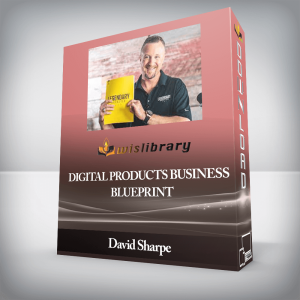8 Hours 45 MinutesStarting with post-traumatic stress disorder (PTSD) in adults and expanding into early attachment and overwhelming attachment and social experiences in childhood (“Developmental Trauma”), this endeavor has elucidated how certain experiences can “set” psychological expectations, bodily experiences and biological selectivity.Purchase Bessel A. van der Kolk’s 30th Annual Trauma Conference: Main Conference *Pre-Order* – Bessel Van der Kolk , Tarana Burke , Robert Whitaker … courses at here with PRICE $199.99 $84This digital seminar is currently on pre-order meaning that the video will not be ready until 10-12 weeks after the program has taken place.The study of trauma has probably been the single most fertile area in helping to develop a deeper understanding of the relationship among the emotional, cognitive, social and biological forces that shape human development.Starting with post-traumatic stress disorder (PTSD) in adults and expanding into early attachment and overwhelming attachment and social experiences in childhood (“Developmental Trauma”), this endeavor has elucidated how certain experiences can “set” psychological expectations, bodily experiences and biological selectivity.When addressing the problems of traumatized people who, in a myriad of ways, continue to react to current experience as a replay of the past, there is a need for therapeutic methods that do not depend exclusively on drugs, talk or understanding. We have learned that most experience is automatically processed on a subcortical level of the brain; i.e., by “unconscious” interpretations that take place outside of conscious awareness. Insight and good intentions have only a limited influence on the operation of these subcortical processes, but synchrony, movement and reparative experiences do.This conference will present both basic research about the impact of trauma over the life cycle, and a range of effective interventions that are being practiced in clinics, schools, prisons, families, and communities around the world.Workshops included in this recording:Three Decades of Explorations in Trauma: Welcome & Introduction – Bessel A. van der Kolk, MDMe Too: At the Intersection of Sexual Violence and Racial Justice— A Fireside Chat with Tarana Burke – Tarana BurkePsychiatry Under the Influence: Institutional Corruption, Social Injury and Prescriptions for Reform – Robert WhitakerTrust and Meaning Making in Parent-Child Interactions – Edward Tronick, Ph.D.The Enduring Neurobiological Effects of Abuse and Neglect – Martin Teicher, MD, Ph.D.The Evolution of Developmental Trauma Disorder – Julian Ford, Ph.D, ABPPPanel Discussion – Bessel A. van der Kolk, MD, Edward Tronick, Ph.D., Martin Teicher, MD, Ph.D., Julian Ford, Ph.D.Expressive Arts as Healing Engagement – Cathy Malchiodi, Ph.D.DE-CRUIT: Treating Trauma in Military Veterans through Shakespeare & Science – Stephan Wolfert, MFADealing with Trauma in the Heart of the Community: Implementing a Comprehensive Yoga Program in a Large Public School System – Ali Smith, Atman Smith, & Andres GonzalezPresent an overview of the impact of trauma on the various parts of the brain, body and nervous system.Identify culturally aware and effective therapeutic interventions with post-trauma student populationsUtilize the individual and social interventions developed by the Me Too movement to reduce the prevalence of sexual violenceAssess current research findings in regard to long-term antidepressant treatment and possible negative outcomesExplain the relationship between maternal responsiveness and infant development of ability to manage arousalDescribe how traumatic experiences impact brain development and affect regulation as it relates to clinical practice.Recognize the five symptom clusters used in the DSM-5® to define Developmental Trauma Disorder (DTD) in relation to assessment and treatment planning.Identify why sensory-based, arts interventions are essential to reducing the body’s response to stress and put to practical use in-session.Critique current research into the efficacy of expressive arts approached to trauma treatmentUtilize DE-CRUIT techniques to transform military camaraderie into camaraderie among treatment group members to communalize the process of healing from the trauma of war.Implement mindful and stress reducing techniques in school settings to reduce disciplinary actions and the academic impact of traumaThree Decades of Explorations in Trauma: Welcome & Introduction (Bessel A. van der Kolk, MD)Viewing trauma through the perspective of neuroscience and military experiencePolitical implications of the role of childhood trauma historyPrevalence and impact of violence and povertyLimitations of research and current diagnostic framework for traumaOmission of social context and importance of interpersonal connectionsMe Too: At the Intersection of Sexual Violence and Racial Justice— A Fireside Chat with Tarana Burke (Tarana Burke)Developmental history of the 21st Century program for survivors of poverty and abuseTransition into the Me Too movementCultural influences on trauma processing and identification of trauma survivorsStructuring intervention with vulnerable student populationsEvolution of Me Too platform – maintaining focus on survivors, training organizersCentral importance of facilitating a culture shiftPsychiatry Under the Influence: Institutional Corruption, Social Injury and Prescriptions for Reform (Robert Whitaker)International research into treatment response and change over timeAdjusting the psychiatric narrative to reflect current research and effective treatment modelsImpact of DSM-III – disease model and theories of chemical imbalanceDramatic expansion of medication interventionsIatrogenic responses to psychiatric medications – Star*D research trialTardive Dysphoria and Oppositional Tolerance – increased vulnerability to relapseTrust and Meaning Making in Parent-Child Interactions (Edward Tronick, PhD)Humans as makers of meaningInfant development in a volatile, uncertain, complex and ambiguous worldDevelopmental stages in the meaning making process – involved psychobiological systemsInfant self-regulation processes and arousal responsesPersistent and generalized cardiac reactivityMaternal influences on the development of stress responseDevelopmental consequences of early chronic adverse effectsHemispheric adaptations in the amygdalaThe Enduring Neurobiological Effects of Abuse and Neglect (Martin Teicher MD, PhD)Risk factors related to childhood abuse and neglectCascade of physiological and neurohumoral responses disrupting brain developmentSensitive exposure periodsNeurological expression of early adverse experiencesDisrupted hemispheric integration – Borderline and Dissociative symptom manifestationHeightened response to threat – functional adaptation to malevolent environmentFear circuit regions and pathways – amygdala and hippocampusGender and developmental differential response to abuse and neglectReactive Attachment DisorderStructural connectivity networks – emotional regulation and self-centered imageryArchitectural differences in traumatized individuals who do not develop pathologyThe Evolution of Developmental Trauma Disorder (Julian Ford, PhD, ABPP)Origins of Developmental Trauma Disorder – differentials from other trauma diagnosesCentral issues in production and expressionDSM-5 PTSD criteria changes from DSM-IVAdaptations to threat environmentsCase example – therapeutic engagement with DTD adolescentEffects of developmental trauma on infants and children – relationship disruptionsCore elements of the DTD diagnosis – attentional, physiological and relational self-regulationContrasts between DTD and PTSD symptom presentations – field trial resultsFuture directions of researchCase example – family interventionPanel Discussion (Bessel A. van der Kolk, MD; Edward Tronick, PhD; Martin Teicher MD, PhD; Julian Ford, PhD, ABPP)Creating a new narrative – functional adaptation to the tribeAdapting therapeutic approach to varied settings and individualsUnderstanding cultural and socio-economic influences on trauma experienceDeveloping resources and research base for treating childhood traumaSocial reluctance to acknowledge the impact of developmental traumaExpressive Arts as Healing Engagement (Cathy Malchiodi, PhD)Integration of expressive arts into expressive art therapyThe “silos” of expressive artCurrent expressive arts programs in health and community settingsContinuum of expressive arts therapiesAsset driven approach as opposed to pathology driven interventionsLimitations of evidence base underlying expressive arts therapy for trauma treatmentDirections for future researchEffective implementation of community-based interventionsFour part model for expressive arts and trauma – movement, sound, storytelling, and silenceExamples of effective implementationDE-CRUIT: Treating Trauma in Military Veterans through Shakespeare & Science (Stephan Wolfert, MFA)Racial and colonization history related to social traumaOrigins of DE-CRUIT programImpact of Shakespearian themes on personal trauma and symptom expressionProjective measures for expression and identifying trauma symptomatologyParallels between Shakespearian content and PTSD symptomsApplying specific passages to dreams and experiencePacing, rhythm and groundingResearch into the efficacy of the DE-CRUIT programDealing with Trauma in the Heart of the Community: Implementing a Comprehensive Yoga Program in a Large Public School System (Ali Smith, Atman Smith, and Andres Gonzalez)Demonstration of Silent Reflection techniqueHistory and development of the Holistic Life FoundationTop down approach – establishing mindfulness in caretaking adults firstCentrality of presence and consistencySetting boundaries and self-care to create sustainable programsMindful Moment Program – turning detention into meditationOutcome measures of reduced suspensionsRelationship development with gatekeepersReciprocal teaching processMindful Ambassadors ProgramLeveraging the impact of limited resourcesDemonstration of Stress Breath techniqueManaging poorly engaged or motivated students effectivelyUsing trauma informed languageCultural avenues for facilitating engagementAdapting programs to diverse or changing environmentsTag: Bessel A. van der Kolk’s 30th Annual Trauma Conference: Main Conference *Pre-Order* – Bessel Van der Kolk , Tarana Burke , Robert Whitaker , Ed Tronick , Martin Teicher , Julian Ford , Cathy Malchiodi , Stephan Wolfert , Ali Smith , Atman Smith & Andres Gonzalez Review. Bessel A. van der Kolk’s 30th Annual Trauma Conference: Main Conference *Pre-Order* – Bessel Van der Kolk , Tarana Burke , Robert Whitaker , Ed Tronick , Martin Teicher , Julian Ford , Cathy Malchiodi , Stephan Wolfert , Ali Smith , Atman Smith & Andres Gonzalez download. Bessel A. van der Kolk’s 30th Annual Trauma Conference: Main Conference *Pre-Order* – Bessel Van der Kolk , Tarana Burke , Robert Whitaker , Ed Tronick , Martin Teicher , Julian Ford , Cathy Malchiodi , Stephan Wolfert , Ali Smith , Atman Smith & Andres Gonzalez discount.Purchase Bessel A. van der Kolk’s 30th Annual Trauma Conference: Main Conference *Pre-Order* – Bessel Van der Kolk , Tarana Burke , Robert Whitaker … courses at here with PRICE $199.99 $84

 Mass Violence: Risk Identification and Intervention Strategies for Potentially Violent Clients and Effective Treatment Techniques for Survivors – Kathryn Seifert
₹13,944.00
Mass Violence: Risk Identification and Intervention Strategies for Potentially Violent Clients and Effective Treatment Techniques for Survivors – Kathryn Seifert
₹13,944.00
 Behavioral Treatment of Chronic Pain: Evidence-Based Techniques to Move People from Hurt to Hope – Martha Teater
₹13,944.00
Behavioral Treatment of Chronic Pain: Evidence-Based Techniques to Move People from Hurt to Hope – Martha Teater
₹13,944.00
Bessel A. van der Kolk’s 30th Annual Trauma Conference: Main Conference *Pre-Order* – Bessel Van der Kolk , Tarana Burke , Robert Whitaker …
₹13,944.00



